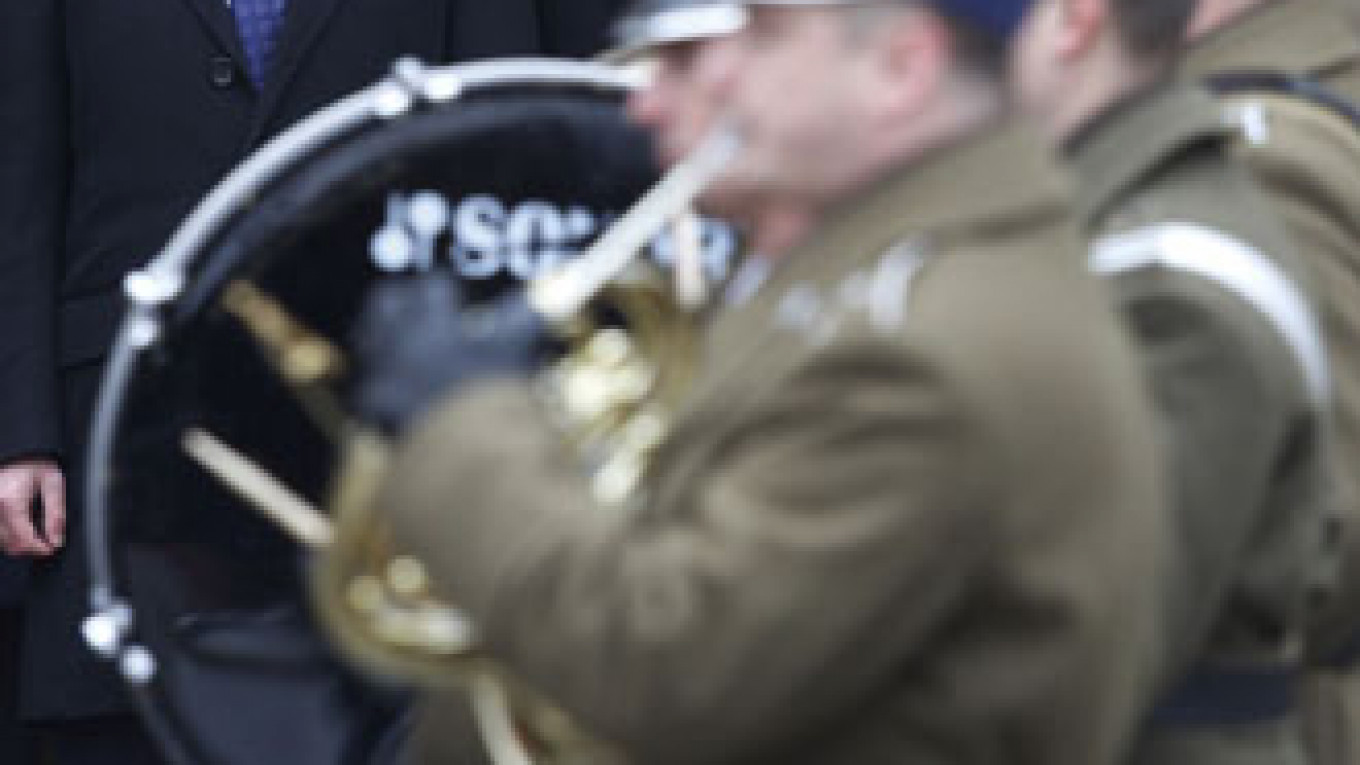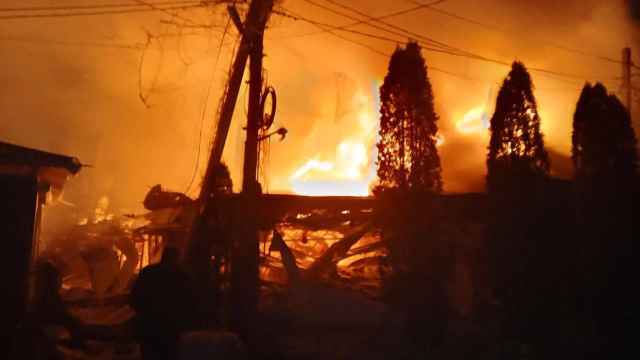WARSAW — President Dmitry Medvedev said Monday that Russian firms wants to take part in the privatization of Polish companies and promised to cooperate with Poland in investigating a plane crash in the Smolensk region that killed Poland's president in April.
During a visit designed to draw a line under old disputes and highlight burgeoning economic ties, Medvedev also confirmed his readiness to work with NATO on missile defense.
"There are big energy projects in Poland with regard to privatization that would be of interest to Russian entities," Medvedev told a joint news conference with Polish President Bronislaw Komorowski.
In his remarks, he singled out Poland's second-largest refiner Lotos as a potential target. The Polish government has put up for sale a controlling 53 percent stake in Lotos and will be awaiting offers until early 2011.
Energy Minister Sergei Shmatko told reporters in Warsaw that a number of Russian companies had shown interest in buying the Lotos stake.
"Rosneft and Gazprom's oil arm, Gazpromneft, among other Russian companies, are eyeing the possibility," he said.
Medvedev, the first Russian president to visit the Polish capital in eight years, said some Russian firms might be interested in listing on the Warsaw bourse, emphasizing the role of small and medium-sized businesses.
Addressing Komorowski, Medvedev said Russia was committed to full transparency in investigating the April 10 plane crash that killed 96 people, mostly top Polish officials.
"This is a very sad page [in our history]. We must do all we can so that no practical questions remain, so we agreed [with Komorowski] to continue to work in this direction under our joint patronage," Medvedev said.
Some, mainly from Poland's right-wing opposition Law and Justice party, have accused Moscow of trying to cover up the crash. A small group of protesters waved Polish flags and banners reading, "We want the truth," near the presidential palace where Medvedev and Komorowski held their talks.
"I think Medvedev has a duty … to explain to the Polish people what happened there and why he and his master, Putin, have been lying since April 10 about what they did there," said one protester, Edward Mizikowski, referring to Prime Minister Vladimir Putin.
Russia won praise from Poland last month when the State Duma backed a resolution that for the first time blamed Soviet dictator Josef Stalin for the 1940 massacre of thousands of Polish officers in Katyn in the Smolensk region.
Medvedev also awarded a friendship medal to octogenarian Polish film director Andrzej Wajda, whose film "Katyn" was shown on Russian television earlier this year. Wajda's father was among those who perished at Katyn in 1940.
Also during the visit, Russian and Polish historians presented a joint history book covering sensitive episodes from their shared past. NATO-related issues were also on agenda.
In an interview published on Monday in the weekly Polish magazine Wprost, Medvedev said: "This should be a joint initiative of Russia and NATO to protect us against threats. [But] if Russia does not find a place for itself within that system, in 2020 it may be that an anti-missile defense umbrella will become a factor destabilizing the nuclear equilibrium and diminishing Russia's defense capacity, and this may lead to a new arms race."
A Message from The Moscow Times:
Dear readers,
We are facing unprecedented challenges. Russia's Prosecutor General's Office has designated The Moscow Times as an "undesirable" organization, criminalizing our work and putting our staff at risk of prosecution. This follows our earlier unjust labeling as a "foreign agent."
These actions are direct attempts to silence independent journalism in Russia. The authorities claim our work "discredits the decisions of the Russian leadership." We see things differently: we strive to provide accurate, unbiased reporting on Russia.
We, the journalists of The Moscow Times, refuse to be silenced. But to continue our work, we need your help.
Your support, no matter how small, makes a world of difference. If you can, please support us monthly starting from just $2. It's quick to set up, and every contribution makes a significant impact.
By supporting The Moscow Times, you're defending open, independent journalism in the face of repression. Thank you for standing with us.
Remind me later.






